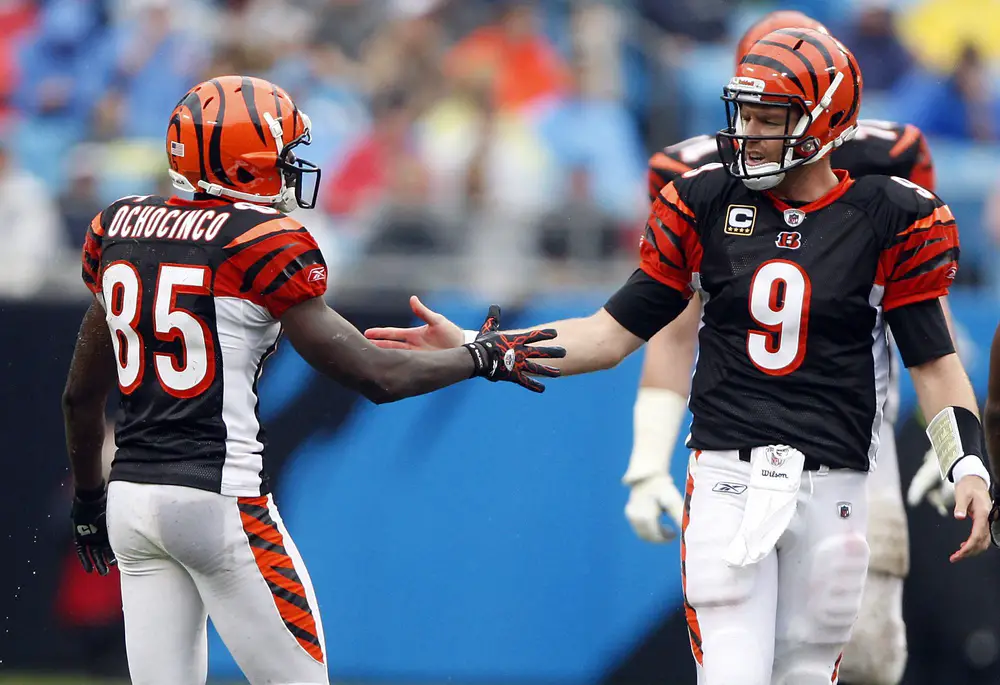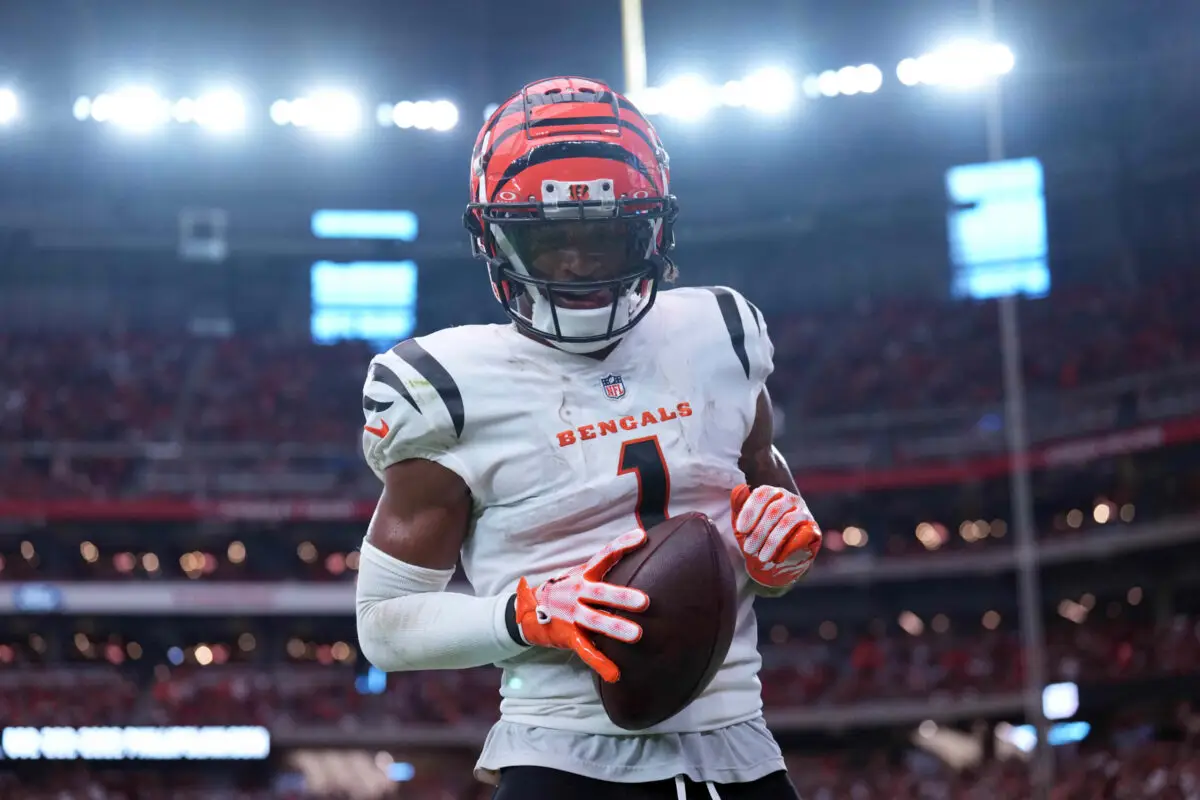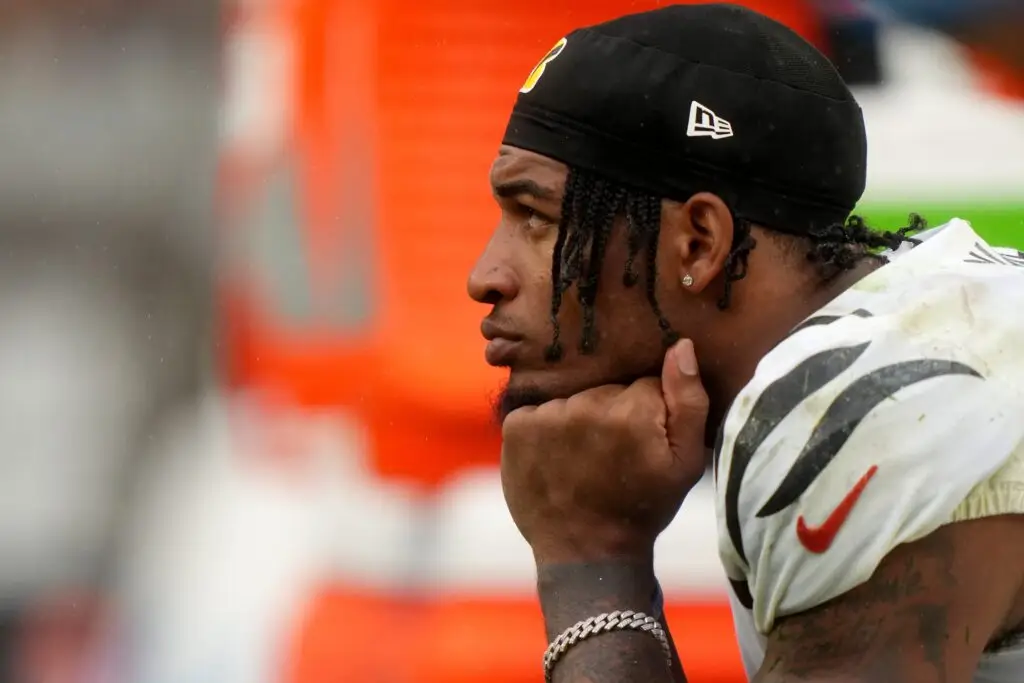Over the course of their almost sixty-year history in the National Football League, the Cincinnati Bengals have a history of sticking to their guns during contract negotiations. Just over a decade ago, this organization held the future in the palm of their hands with 2003 first overall pick Carson Palmer. In that circumstance, the organization refused to budge and allowed the face of their franchise to sit out an entire season before the team sent him to the Oakland Raiders for a first-round pick. While players certainly change with time, core philosophies can be hard for ownership groups to shake.
Cincinnati Bengals Expect Superstar Wide Receiver to Start Amid Contract Dispute

This offseason, the team has been in a similar contract dispute with former all-pro wide receiver Ja’Marr Chase. While the front office and their stubborn attitude toward free agency is partially to blame, Chase is certainly not entirely innocent after his monstrous contract demand of a 40 million dollar per year contract left negotiations at an impasse. On top of that, Chase has sat out the entire preseason and has threatened to sit out during the regular season if the team didn’t cave in to his demands.

Luckily for the entire city of Cincinnati, Chase appears to have eased his stance regarding the holdout as he arrived to practice immediately after the conclusion of the final preseason game against the Indianapolis Colts. On top of that, NFL Insider Ian Rapoport reported late on Tuesday afternoon that head coach Zac Taylor expects Chase to be ready to start for the season opener on September 8th against the New England Patriots.
Limitations to the Holdout Strategy

While the ability of a negotiating player to holdout has shifted contract power toward the players, there are still certainly some limitations. In recent years, holdouts have proven to be disastrous for a players career in the long run after teams are generally unwilling to touch players who have missed serious playing time whether that time is due to an injury or a contract dispute.
The biggest example of this would be former Steelers running back Le’Veon Bell. Bell sat out the entire 2018 season on holdout and was ultimately awarded a contract similar to what he was offered with Pittsburgh in 2019 by the New York Jets. Even though the value of the contract was the same, Bell’s career never recovered after the full year off of football in 2018 as he was cut from the Jets after just two seasons and hasn’t found a stable role in the NFL since that contract was terminated in 2020.

While players like to pretend that they have authority when it comes to contract negotiations, most players come to the realization that such a stubborn resolution ends up hurting their career far more than just accepting a slight cut to their desired salary.
Chase, in particular, must appreciate that with two years left on his current contract in Cincinnati, there is no possible way that a holdout would be productive for his long-term goal of a record-breaking contract. Chase would have to sit out a full two seasons before another team had the ability to sign him and after two years out of the league, it’s almost guaranteed that no team would be willing to pay him 30% of what Cincinnati is already offering him.

While it must be incredibly confusing as to what the right decision is during rapidly changing contract negotiations, Chase is choosing the correct path by not triggering a negative event in order to demand a contract extension. Now, Chase has the opportunity to play an exceptional season and demand even more mone from Cincinnati if he succeeds in that task.
Follow me on Twitter at @Super_Squatch76. To read more of our articles and keep up to date on the latest in college and NFL news, click here! If there is a topic you’d like me to cover or a question you’d like to ask, feel free to contact me at my email timothy.mcbride76@gmail.com.


